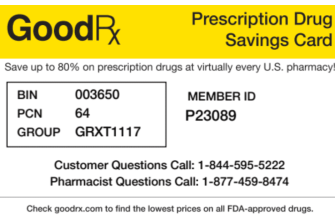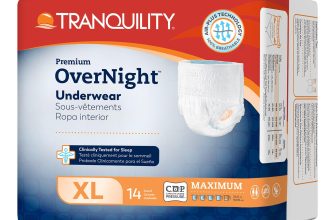Take Levitra 20mg approximately 60 minutes before anticipated sexual activity. Swallow the tablet whole with a glass of water. Avoid taking it with high-fat meals, as this can delay absorption and reduce effectiveness.
The recommended dose is one 20mg tablet. Your doctor may adjust this based on your individual needs and health status. Never exceed the prescribed dosage. If you experience side effects, such as headaches, flushing, or nasal congestion, contact your doctor immediately.
Important Note: Levitra is only effective when sexual stimulation is present. It does not act as an aphrodisiac and won’t cause an erection without arousal. Always consult your physician before starting Levitra or any other medication for erectile dysfunction.
Remember: This information is for guidance only and does not replace professional medical advice. Always discuss your treatment plan with your doctor to ensure the safest and most effective approach for your situation. They can help you understand potential risks and benefits.
- Levitra 20mg: A Comprehensive Guide to Usage
- Understanding Levitra 20mg: What it is and what it treats
- Dosage and Administration: How much to take and when
- Factors Affecting Dosage
- Taking Levitra with Food
- Timing is Key: When to take Levitra for optimal results
- Food and Drink Interactions: What to avoid before and after taking Levitra
- Potential Side Effects: Knowing what to expect
- Precautions and Contraindications: Who should not use Levitra
- Heart Conditions and Blood Pressure
- Specific Medications and Interactions
- Other Contraindications
- Before Starting Treatment
- Interactions with Other Medications: Important considerations for safe usage
- Nitrates and Levitra: A Dangerous Combination
- Other Medications Requiring Caution
- Grapefruit Juice: A Potential Interaction
- Reporting Side Effects
- What to do if Levitra doesn’t work or if you experience side effects
Levitra 20mg: A Comprehensive Guide to Usage
Take Levitra 20mg at least 25 to 60 minutes before sexual activity. Swallow the tablet whole with a glass of water.
Dosage Adjustments: Your doctor will determine the appropriate dosage. Don’t exceed the recommended dose without consulting them. They may adjust the dosage based on your response and health conditions.
- For most men: 10mg is the starting dose. 20mg might be prescribed if needed.
- For men with liver or kidney problems: A lower dose may be recommended. Your doctor will adjust accordingly.
- For older men (65+): A lower starting dose might be considered, again at your doctor’s discretion.
Frequency: Only take Levitra once per day.
Food and Alcohol: High-fat meals can delay the onset of action. Limit alcohol consumption as it can reduce the effectiveness of Levitra and increase the risk of side effects.
Possible Side Effects: Common side effects include headache, flushing, nasal congestion, and indigestion. More serious but rare side effects include sudden vision loss or hearing loss. Seek immediate medical attention if you experience these.
- Headache
- Facial flushing
- Nasal congestion
- Indigestion
Interactions: Levitra can interact with other medications. Inform your doctor about all the medications, supplements, and herbal remedies you’re taking. This includes nitrates, which are dangerous to combine with Levitra.
Storage: Store Levitra at room temperature, away from moisture and direct sunlight. Keep it out of reach of children.
Seek Medical Advice: This guide provides general information. Always consult your doctor before using Levitra, especially if you have underlying health conditions.
Understanding Levitra 20mg: What it is and what it treats
Levitra 20mg is a prescription medication containing vardenafil, a phosphodiesterase-5 (PDE5) inhibitor. It helps treat erectile dysfunction (ED), also known as impotence, in men. This means it assists in achieving and maintaining an erection firm enough for satisfactory sexual intercourse.
How it works: Levitra increases blood flow to the penis when sexually stimulated. This improved blood flow allows for a stronger and more sustained erection. The 20mg dosage is a higher strength, potentially suitable for individuals who haven’t responded well to lower doses or require more potent effects.
Important Note: Levitra 20mg is not a cure for ED. It addresses the symptoms, facilitating sexual activity. It’s crucial to consult a doctor before use to determine suitability and discuss potential side effects. Your doctor will assess your overall health and consider potential interactions with other medications you may be taking.
What it treats: Primarily, Levitra 20mg treats erectile dysfunction. It might also be considered, under specific circumstances and doctor’s guidance, to help with symptoms of benign prostatic hyperplasia (BPH), though this is not its primary indication.
Remember to follow your doctor’s instructions precisely regarding dosage and timing. Proper use ensures maximum benefit and minimizes potential risks. Don’t hesitate to discuss any concerns or questions you may have with your healthcare provider.
Dosage and Administration: How much to take and when
Take one 20mg Levitra tablet orally, as needed, approximately 25-60 minutes before sexual activity. Do not take more than one tablet in a 24-hour period. The effects can last up to 4-5 hours, but this varies between individuals.
Factors Affecting Dosage
Your doctor may adjust your dosage based on your response to the medication and your overall health. Certain health conditions or medications may require a lower dose. Always follow your doctor’s instructions. If you have liver or kidney problems, a lower dose might be recommended. Likewise, if you’re taking certain other medications, interactions are possible, so consult your doctor before using Levitra.
Taking Levitra with Food
Levitra can be taken with or without food. However, a high-fat meal may slightly delay the onset of the effect. For optimal results, avoid consuming excessively fatty foods before taking Levitra.
Timing is Key: When to take Levitra for optimal results
Take Levitra approximately 60 minutes before anticipated sexual activity. This allows sufficient time for the medication to be absorbed into your bloodstream and begin working.
However, Levitra can be taken anywhere between 30 and 120 minutes beforehand. Individual responses vary, so experiment within this window to find your optimal timing.
- Faster absorption: Taking Levitra on an empty stomach may lead to quicker onset.
- Slower absorption: A high-fat meal can delay absorption, potentially extending the time before Levitra takes effect.
Avoid alcohol consumption before or during Levitra use. Excessive alcohol can interfere with its effectiveness and potentially increase side effects.
- Consistency: Note the time it takes to work for you personally, allowing consistent expectations.
- Communication: Discuss any changes in effectiveness with your doctor.
- Dosage: Your doctor determined your dosage; do not alter it without consultation.
Remember, Levitra only works with sexual stimulation. It doesn’t create spontaneous erections.
Food and Drink Interactions: What to avoid before and after taking Levitra
Grapefruit juice is a known culprit. Avoid it completely, both before and after taking Levitra. The compounds in grapefruit juice can interfere with the medication’s metabolism, leading to unexpectedly high levels in your bloodstream.
High-fat meals can delay the onset of Levitra’s effects. While you don’t need to starve yourself, opt for a lighter meal before taking the medication to experience its effects more quickly. Think lean protein and vegetables, not a greasy burger.
Alcohol can interact negatively. Combining Levitra with excessive alcohol may increase the risk of side effects like dizziness, headache, or low blood pressure. Moderate your alcohol consumption, or avoid it altogether, while using Levitra.
- Avoid grapefruit juice completely.
- Choose lighter meals before taking Levitra.
- Limit or avoid alcohol.
Remember to always consult your doctor or pharmacist for personalized advice. They can help you navigate potential interactions specific to your health and other medications you may be taking. This information provides general guidelines; individual responses may vary.
Potential Side Effects: Knowing what to expect
Levitra, like other medications, can cause side effects. Most are mild and temporary. However, understanding potential issues allows for better preparation and informed decision-making.
Common side effects include headache, flushing, nasal congestion, and indigestion. These typically resolve on their own. If they persist or worsen, consult your doctor.
Less common, but still possible, are visual disturbances such as blurred vision or changes in color perception. These usually subside after the medication wears off. Seek immediate medical attention if you experience sudden vision loss.
You might also experience dizziness or faintness. Avoid activities requiring alertness, like driving, until you know how Levitra affects you.
Muscle aches and back pain are other potential side effects. Staying hydrated and resting might help alleviate these symptoms.
| Side Effect | Frequency | Action |
|---|---|---|
| Headache | Common | Over-the-counter pain relievers may help; consult your doctor if persistent. |
| Flushing | Common | Usually resolves on its own. |
| Nasal Congestion | Common | Drink plenty of fluids. |
| Indigestion | Common | Avoid large meals before taking Levitra. |
| Visual Disturbances | Less Common | Seek immediate medical attention if vision loss occurs. |
| Dizziness/Faintness | Less Common | Avoid driving or operating machinery. |
| Muscle Aches/Back Pain | Less Common | Rest and hydration may help. |
Serious side effects are rare but include prolonged erection (priapism) and allergic reactions. Seek immediate medical attention if you experience these.
This information is not a substitute for professional medical advice. Always consult your doctor or pharmacist before taking Levitra or any medication.
Precautions and Contraindications: Who should not use Levitra
Avoid Levitra if you have a history of heart problems, including recent heart attack or stroke. This includes unstable angina (chest pain). Levitra can lower blood pressure, potentially exacerbating these conditions.
Heart Conditions and Blood Pressure
Similarly, avoid Levitra if you have low blood pressure or uncontrolled high blood pressure. Consult your doctor before using Levitra if you take medications for blood pressure.
Severe liver or kidney disease also contraindicates Levitra use. These conditions can affect how your body processes the medication, increasing the risk of side effects.
Specific Medications and Interactions
Levitra interacts negatively with nitrates, often prescribed for chest pain. Combining them can cause a dangerous drop in blood pressure. Discuss all your medications, including over-the-counter drugs and herbal supplements, with your physician before starting Levitra.
Other Contraindications
Do not use Levitra if you have a known allergy to vardenafil (the active ingredient in Levitra) or any of its components. Similarly, avoid Levitra if you have retinitis pigmentosa, a rare eye disease. Finally, Levitra is not approved for women or individuals under 18 years of age.
Before Starting Treatment
Always talk to your doctor. They can help determine if Levitra is safe and appropriate for you, considering your overall health and current medications. Ignoring contraindications can lead to serious health complications.
Interactions with Other Medications: Important considerations for safe usage
Always inform your doctor about all medications you’re taking, including over-the-counter drugs, herbal supplements, and recreational drugs. This includes nitrates (like nitroglycerin), alpha-blockers (used for high blood pressure or enlarged prostate), and certain antifungals. Combining Levitra with these can cause a dangerous drop in blood pressure.
Nitrates and Levitra: A Dangerous Combination
The interaction between Levitra and nitrates is particularly risky. Taking them together can significantly lower your blood pressure, potentially leading to dizziness, fainting, or even a heart attack. Avoid taking Levitra if you use nitrates in any form.
Other Medications Requiring Caution
Alpha-blockers: These drugs, often prescribed for high blood pressure or benign prostatic hyperplasia (BPH), can enhance Levitra’s blood pressure-lowering effects. Your doctor may adjust your dosage or recommend an alternative. Certain antifungals: Some antifungals can increase Levitra’s levels in your blood, potentially leading to side effects. HIV protease inhibitors: These medications can also increase Levitra’s concentration. Discuss these interactions with your healthcare provider.
Grapefruit Juice: A Potential Interaction
Avoid grapefruit juice while taking Levitra. Grapefruit can inhibit the enzymes that break down Levitra, increasing its levels in your body and potentially intensifying side effects.
Reporting Side Effects
If you experience any unusual side effects while taking Levitra, contact your doctor immediately. This allows them to assess the situation and make necessary adjustments to your treatment plan. Open communication with your healthcare provider is key to safe and effective medication use.
What to do if Levitra doesn’t work or if you experience side effects
If Levitra doesn’t produce the desired effect, talk to your doctor. They can assess your situation and explore alternative treatment options, including different dosages or a different medication. Don’t increase your dose without medical advice; this can be dangerous.
If you experience side effects, contact your doctor immediately. The severity and type of side effects vary. Common side effects include headaches, flushing, nasal congestion, and indigestion. Less common, but more serious, side effects can include vision changes, hearing loss, or chest pain. Prompt medical attention is crucial for serious side effects.
| Side Effect | Action |
|---|---|
| Headache, Flushing, Nasal Congestion, Indigestion | These usually subside on their own. If they persist or worsen, contact your doctor. |
| Sudden vision changes, hearing loss, chest pain | Seek immediate medical attention. These could indicate a serious problem. |
| Prolonged erection (priapism) | Seek immediate medical attention. This is a medical emergency. |
Your doctor may suggest alternative treatments, lifestyle changes (like diet and exercise), or further investigations to determine the underlying cause of erectile dysfunction. Open communication with your doctor is key to finding the right solution for you.








